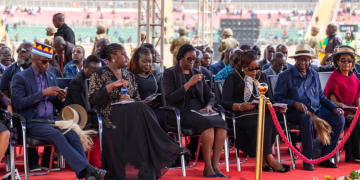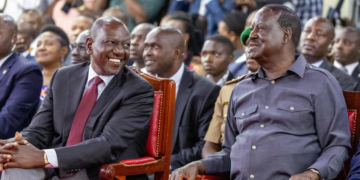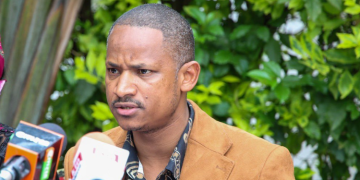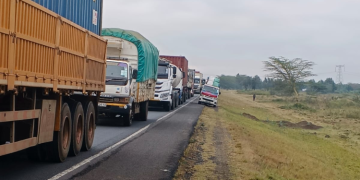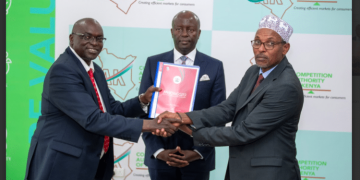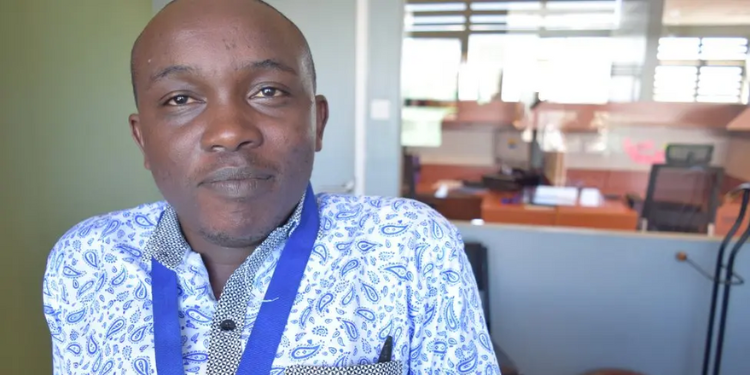On June 23, 2016, lawyer Willie Kimani, his client Josephat Mwenda, and their taxi driver Joseph Muiruri attended a court hearing at the Mavoko Law Courts related to Mwenda’s case. At the time, Kimani was a human rights lawyer working for the International Justice Mission (IJM).
The case was about an incident that happened on April 10, 2015, when Mwenda was shot in the right hand by an Administration Police officer, Fredrick Leliman, during a police operation in the Mlolongo area.
The injury was severe, hindering Mwenda’s ability to work as a boda boda rider, his primary source of income. The permanent damage to his hand significantly affected his livelihood and led him to seek accountability for Leliman’s actions.
Mwenda filed a complaint against Leliman with the Independent Policing Oversight Authority (IPOA) regarding this misconduct.
In response, Leliman accused Mwenda of several crimes, including having marijuana, resisting arrest, gambling, and traffic violations, even though Mwenda was injured and could not ride a motorcycle.
Lawyer Willie Kimani Found Dead Alongside Two Other Individuals
After the court session on that day, Kimani, Mwenda, and Muiruri left in a vehicle. Peter Ngugi, a police informer who later confessed in court, was stationed outside the court to identify Mwenda. Ngugi alerted Fredrick Leliman when the trio exited the court.
Tipped off about their movements, Leliman drove his car toward the direction the three were heading and intercepted their vehicle at a railway crossing, blocking their path.
The three were forcibly removed from their vehicle, bundled into Leliman’s car, and driven to the Syokimau Administration Police Post.
Also Read: Today in History: Fredrick Masinde Declared Mathare MP While Dead
At the police post, they were held without being booked in a metal container, and later that evening, they were driven to a thicket in Mlolongo, where they were tortured and killed.
On July 1, 2016, the bodies of Kimani, Mwenda, and Muiruri were discovered in the Ol Donyo Sabuk River, approximately 100 km from Nairobi.
The post-mortem reports revealed severe torture. Kimani had a fractured skull and crushed genitals from blunt force trauma, while Mwenda suffered head, neck, and chest injuries, including a skull fracture, and Muiruri was strangled with a rope, showing signs of gouged eyes.
The bodies were stuffed into gunny sacks and dumped in the river.
The murders triggered protests across Kenya, with many people, including human rights defenders and members of the Law Society of Kenya (LSK), taking to the streets of Nairobi to demand justice for Kimani, Mwenda, and Muiruri.
Rogue Police Officers Convicted
Amid public pressure on the government to act against the rogue officers linked to the deaths of the three individuals, the Directorate of Criminal Investigations (DCI) and the IPOA launched investigations, leading to the arrest of four Administration Police officers—Fredrick Leliman, Stephen Cheburet, Sylvia Wanjiku, Leonard Mwangi—and informer Peter Ngugi.
Ngugi’s confession detailed a planned execution orchestrated by Leliman, who was angered by Mwenda’s IPOA complaint, which threatened his job.
Ngugi admitted to luring the victims, monitoring their movements, and assisting in their abduction after the court session.
Also Read: Today in History: The Face Behind the Supervision of Torture at Nyayo House Revealed
On July 22, 2022, the three rogue police officers—Fredrick Leliman, Stephen Cheburet, and Sylvia Wanjiku—and police informer Peter Ngugi were convicted of the June 23, 2016, murders of lawyer Willie Kimani, his client Josephat Mwenda, and taxi driver Joseph Muiruri.
Evidence, including a note written by Kimani, phone data, CCTV footage, and Ngugi’s confession, linked the perpetrators to the crime.
On February 3, 2023, Leliman was sentenced to life imprisonment, Cheburet to 30 years, Wanjiku to 24 years, and Ngugi to 20 years. A fifth officer, Leonard Mwangi, was acquitted.
Follow our WhatsApp Channel and X Account for real-time news updates.




